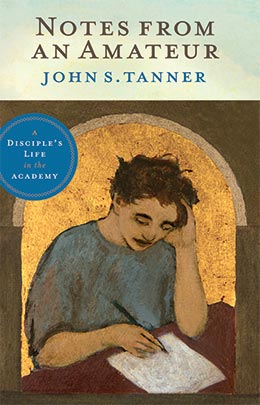Overheard by God
John S. Tanner, Notes from an Ameteur: A Disciple’s Life in the Academy (Provo, UT: Religious Studies Center; Salt Lake City: Deseret Book, 2011), 10–2.
In junior high, I sometimes walked home from school with a couple of boys from my neighborhood, Tom and Randy. Tom was a good kid. Randy was what we called a “hood.” He’d been in and out of Juvenile Hall many times. He had a crazy, wild, mean streak.
One day as we walked along Fremont Avenue over the Pasadena Freeway about a block from my home, Randy grabbed a pop bottle, which he found along nearby train tracks, and threw it down onto the freeway. It exploded next to a passing car; it may have even hit the side mirror. Tom and I could hardly believe what had just happened. Randy only laughed. Then he ran because he saw that the car had pulled off the freeway in hot pursuit.
I don’t know how Randy was caught, but not long after I got home the phone rang. It was Randy. In a furtive voice, he whispered: “John, the police are here. You need to lie for me! You’ve gotta tell them I didn’t do it!” I said, “Randy, I’m not going to lie for you.” He continued begging me to lie. I continued to refuse. Then he hung up.
A few minutes later, my dad came into the room. Unbeknownst to me, he had answered the phone the same time I had and heard the whole conversation. I have often thought about how I would have felt had I agreed to lie for Randy with my dad on the other end of the line.
This experience has reminded me of a truth which is easy to forget: our Heavenly Father is always on the line. All our conversations are overheard by God.
Years ago I read a fine book by A. D. Nuttall entitled Overheard by God. In it, Nuttall analyzes authors like Milton and Herbert, who write not only about God but for God, as the imagined audience of their work. Nuttall’s evocative title always reminds me of the lesson I learned that day when Dad was on the line. Truly our lives are also open books to God, overheard and overseen by him. We ought therefore ever “to walk as in his presence,” as Milton says, for in fact we are ever in his presence.
Occasionally people forget this. Often the culprit is pornography. The computer in a closed office, the TV in an isolated hotel room may tempt one to say, “Who seeth us, and who knoweth us?” (2 Nephi 27:27). This sense of secrecy, of course, is only an illusion because nothing is secret to God: “All things are naked and open unto the eyes of him with whom we have to do” (Hebrews 4:13). At the last day, the “secret acts” of the unrepentant shall be revealed (D&C 1:3). Sometimes our dark deeds are exposed to the painful light of day, even here and now. When members of the BYU community are involved, the university has to act. Dealing with such cases has been one of my saddest duties.
As BYU faculty, we are expected to act with integrity, which means “wholeness,” no matter who sees our actions or who does not. Moral wholeness defines the essence of integrity. Plato illustrated this by the tale of the ring of Gyges in book 2 of The Republic. According to legend, Gyges, like Tolkien’s Bilbo, found a ring with the power to make him invisible. He used this power to commit adultery, slay the king, and do other evil. For Plato, this disclosed the fact that Gyges was not a truly virtuous person. His seemingly ethical character prior to finding the ring was merely an artifact of lack of opportunity rather than a manifestation of his intrinsic values. A truly virtuous person, according to Plato, would act the same whether he were visible or invisible.
I agree. Let us be truly virtuous men and women—full of integrity, whole—knowing that all our actions are visible to Father in Heaven. There is no closet so dark his all-seeing eye does not penetrate, nor any communication not overheard by God.
